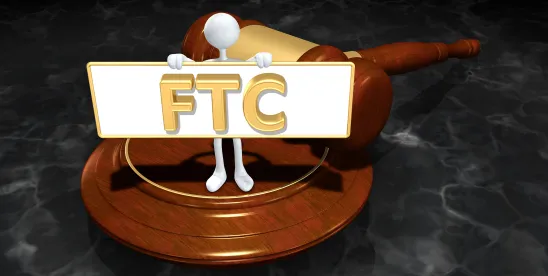On October 16, the FTC announced that it has finalized its “click to cancel” rule, that will require sellers to make it much easier for consumers to cancel subscriptions. The final rule is part of the FTC’s ongoing review of its 1973 Negative Option Rule, which the agency is modernizing to combat unfair or deceptive practices related to subscriptions, memberships, and other recurring-payment programs.
The Commission’s approval of the 230-page rule follows its initial March 2023 announcement of a notice of proposed rulemaking for ‘click to cancel.’ After reviewing public comments, the Commission voted to approve the final rule (along party lines) with several modifications. Notably, it removes the requirement for sellers to provide annual reminders about the negative option feature of subscriptions. It also eliminates the prohibition on sellers offering plan modifications or reasons to maintain the current subscription to consumers attempting to cancel, without first asking if they are interested in hearing those details.
The new rule applies to any person who sells, offers, charges, or otherwise markets a good or service with a “negative option feature,” which includes, among other things, automatic renewal plans, continuity plans, and free-to-pay conversions plans. It broadly applies to negative-option marketing in all forms, whether through the web, phone, print advertising, or in-person transactions.
Specifically, the Rule:
- Prohibits any misrepresentation of material facts when marketing with negative option features (even if that fact is wholly unrelated to the negative option feature);
- Requires that sellers provide essential information before collecting consumers’ billing details and charging them;
- Requires sellers to obtain consumers’ clear, affirmative consent to the negative option feature before making any charges; and
- Obligates sellers to offer consumers simple cancellation methods to immediately stop all recurring charges.
The FTC also provided a quick-reference fact sheet, which concisely summarizes key takeaways.
The Rule requires negative option sellers to clearly and conspicuously disclose all “Material terms,” irrespective of whether those terms directly relate to the negative option feature. The Rule includes a non-exhaustive list of terms that must be disclosed, including: (a) whether consumers will be charged, whether charges will increase, or, that the charges occur on a recurring basis; (b) the deadline to stop recurring charges; (c) the amount and frequency of those charges; and (d) the information necessary for the consumer to cancel charges.
The Rule goes into effect in stages. Provisions relating to disclosures, consent, and cancellation will go into effect within 180 days of publication in the Federal Register while provisions prohibiting misrepresentations will take effect within 60 days.
Putting It Into Practice: The reach of the rule is expansive and certain to be challenged. Notably, the Commission’s staff made clear that the Rule applies to business-to-business transactions. In addition, because the final rule prohibits sellers from misrepresenting any material fact, the Commission confirmed a material misrepresentation in a privacy policy could indeed violate the rule. Sellers utilizing negative option programs should review the FTC’s finalized rule and consider whether their business practices are impacted.





 />i
/>i


